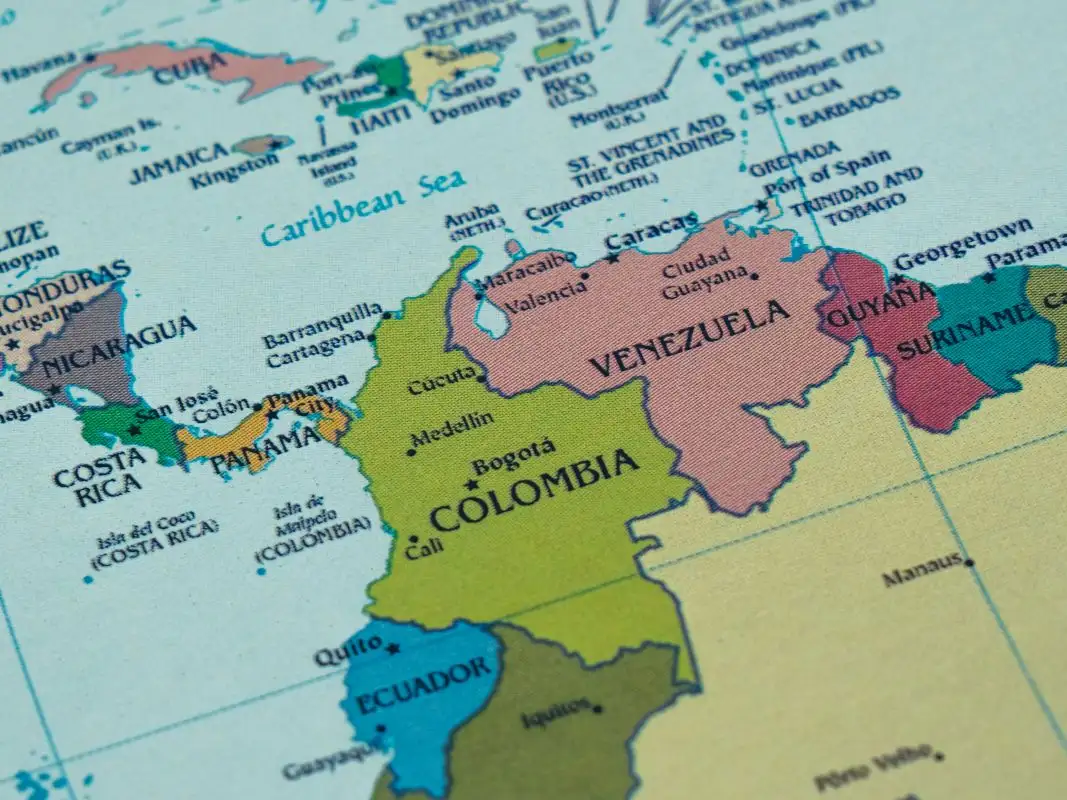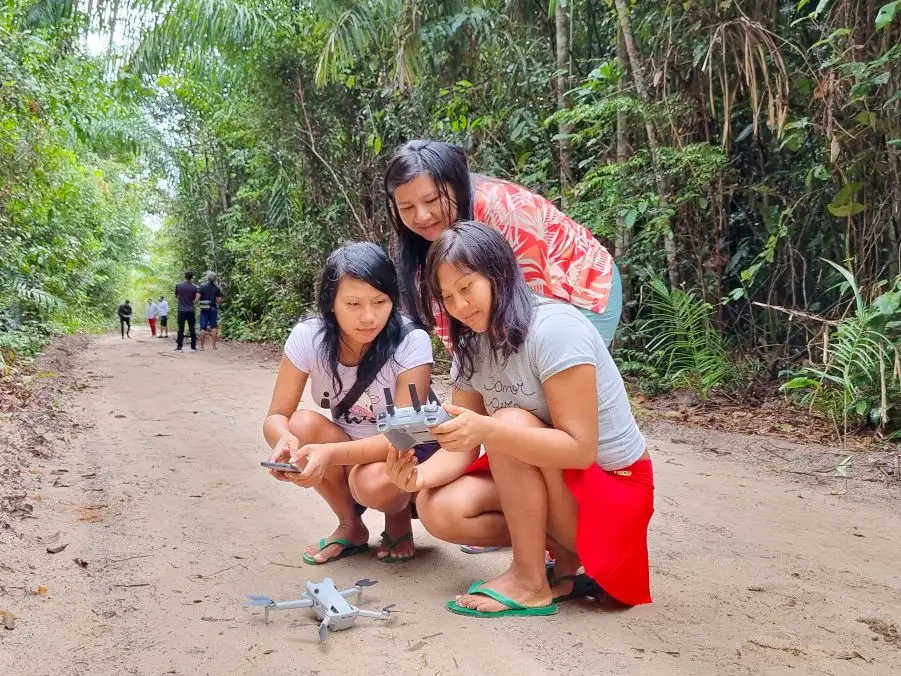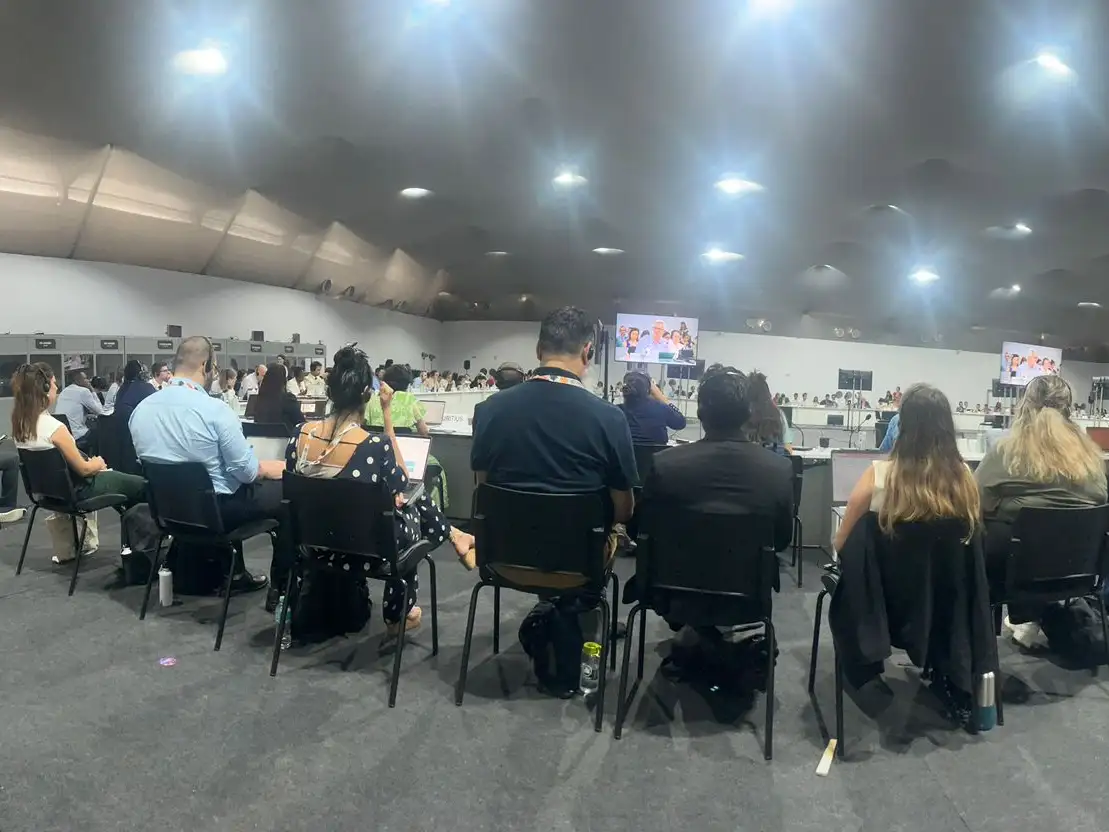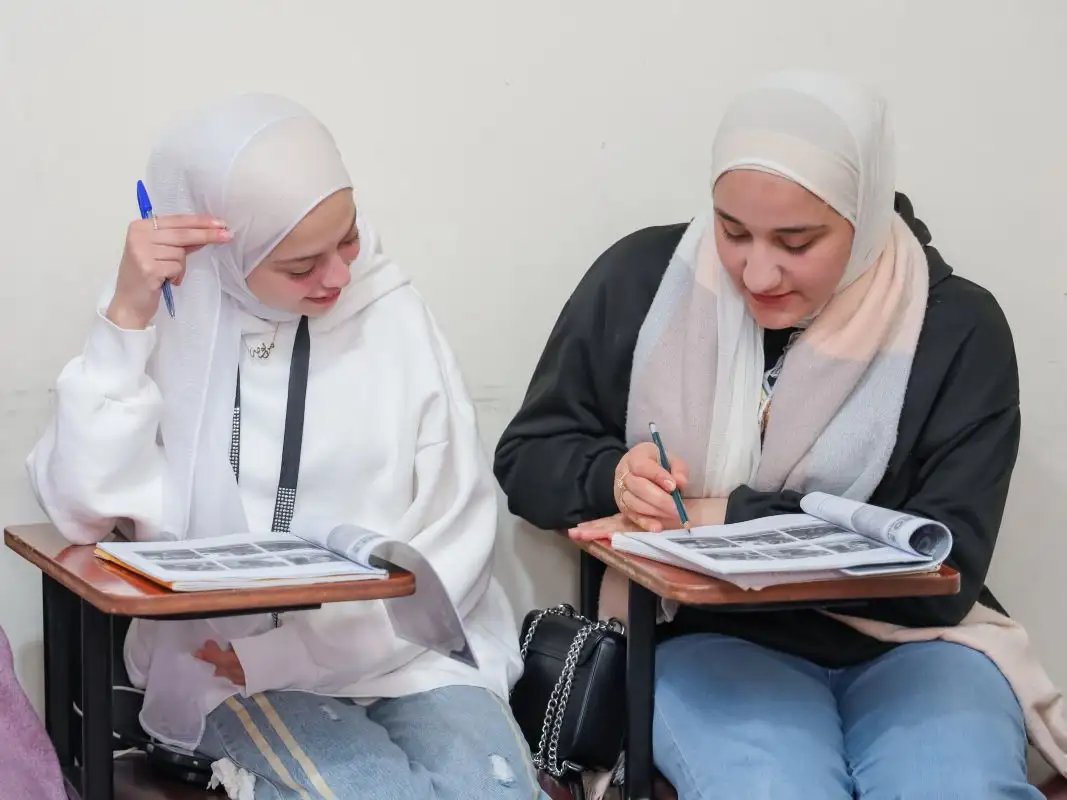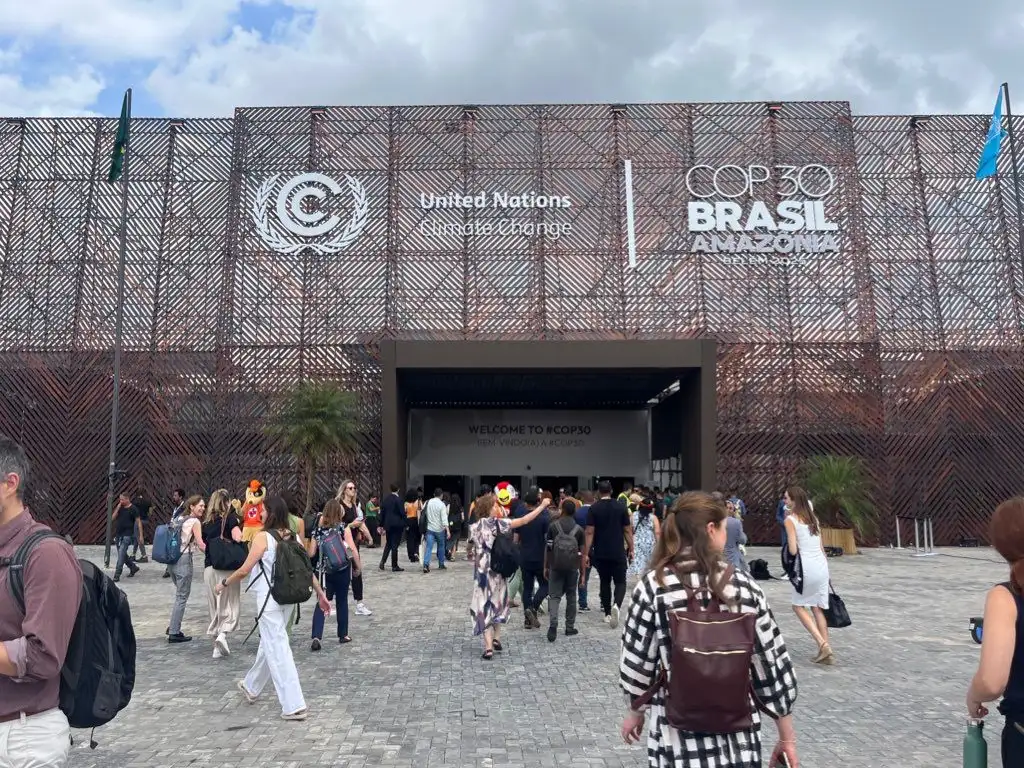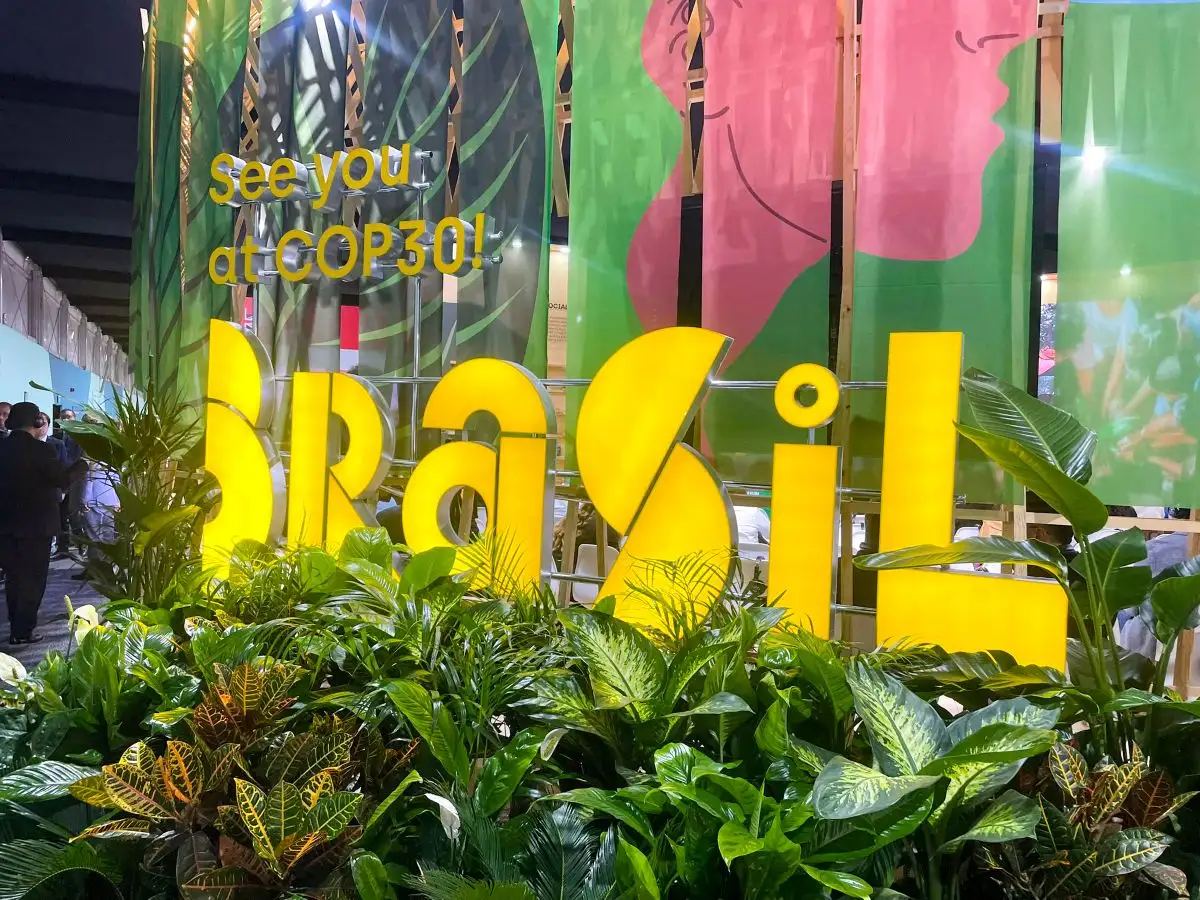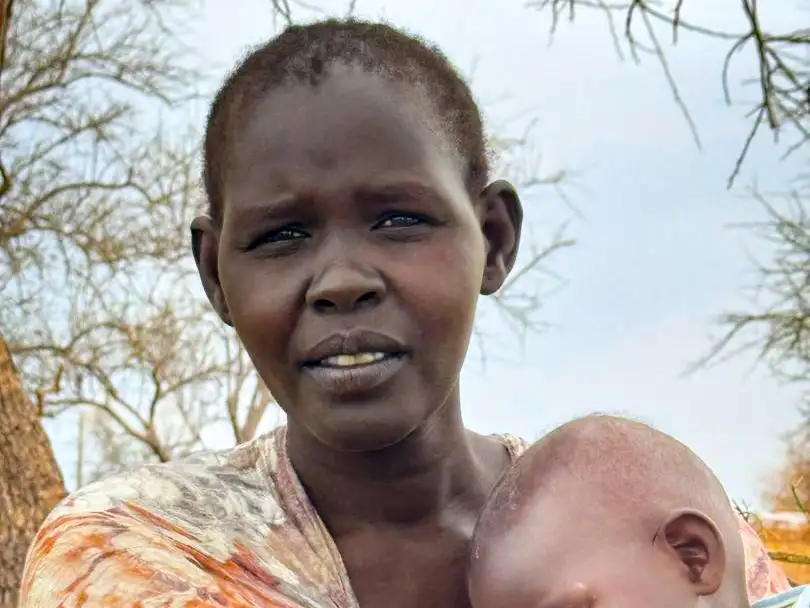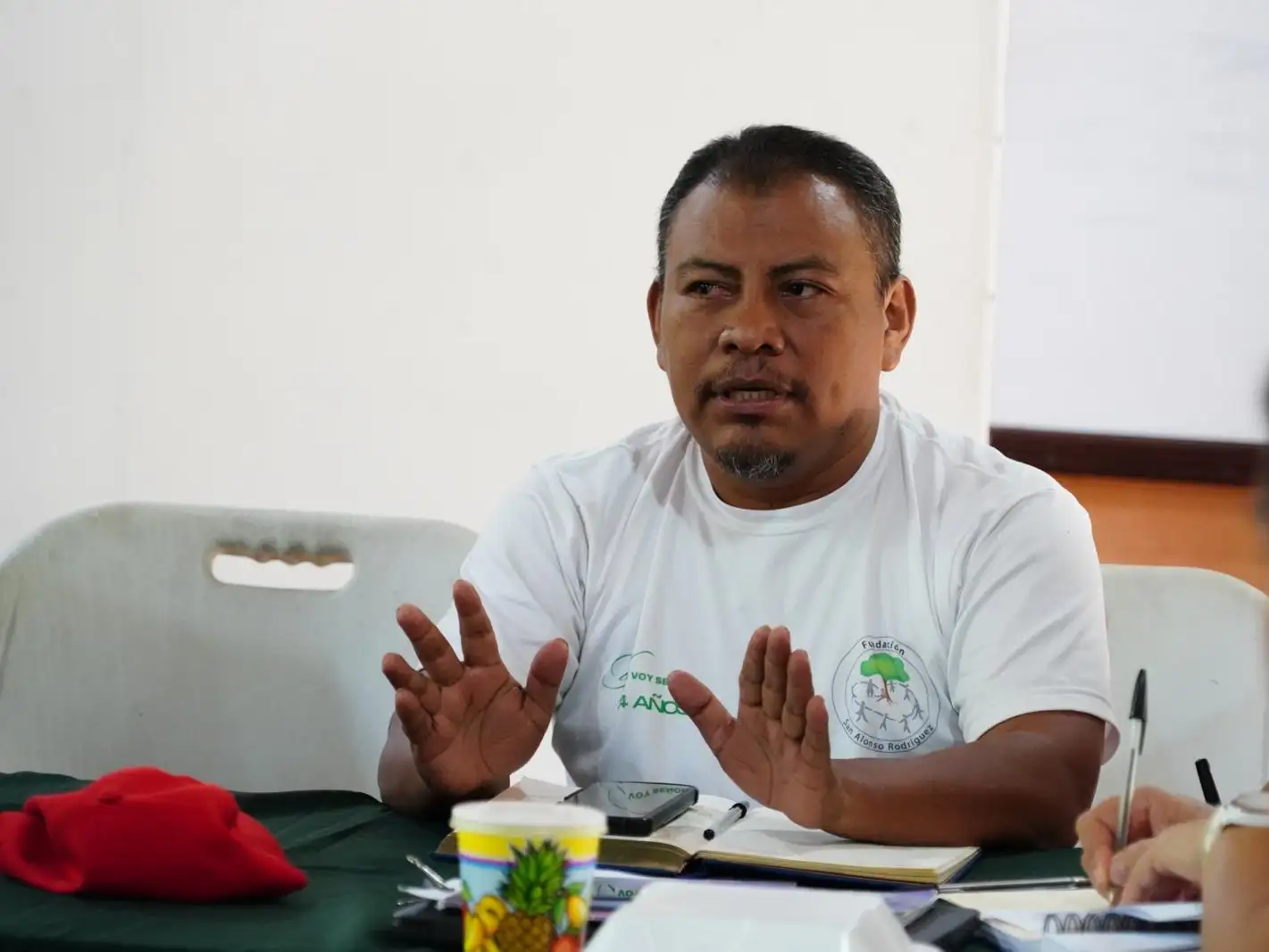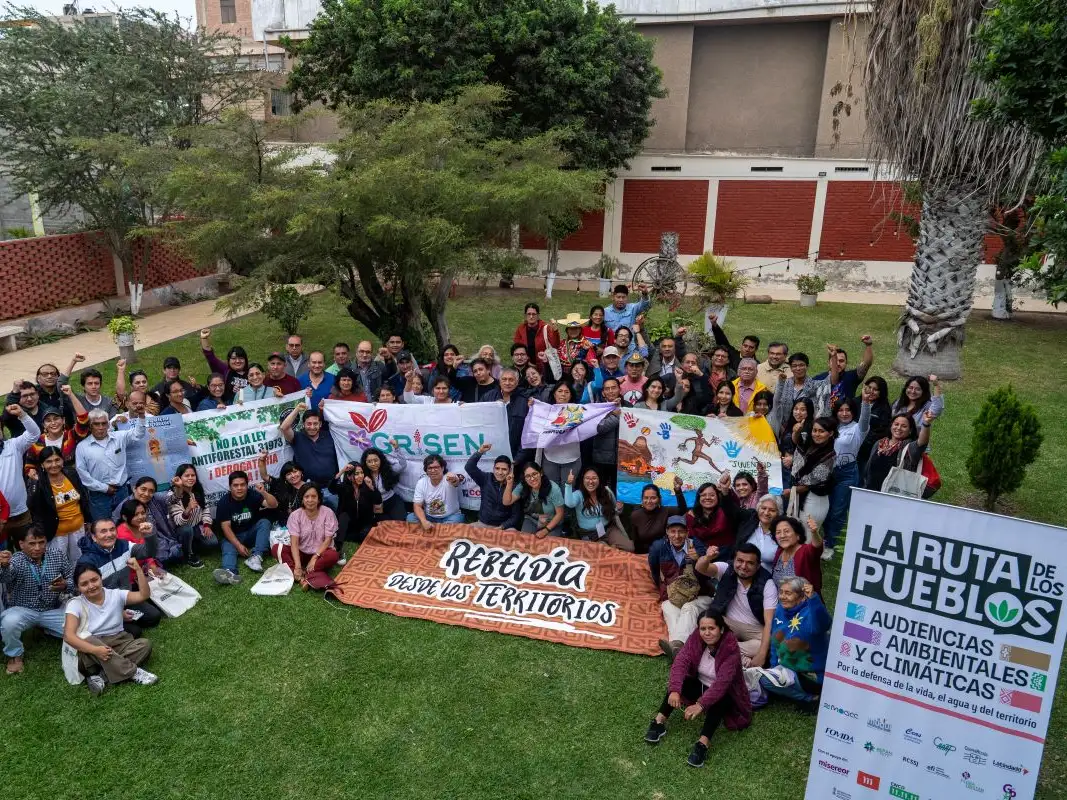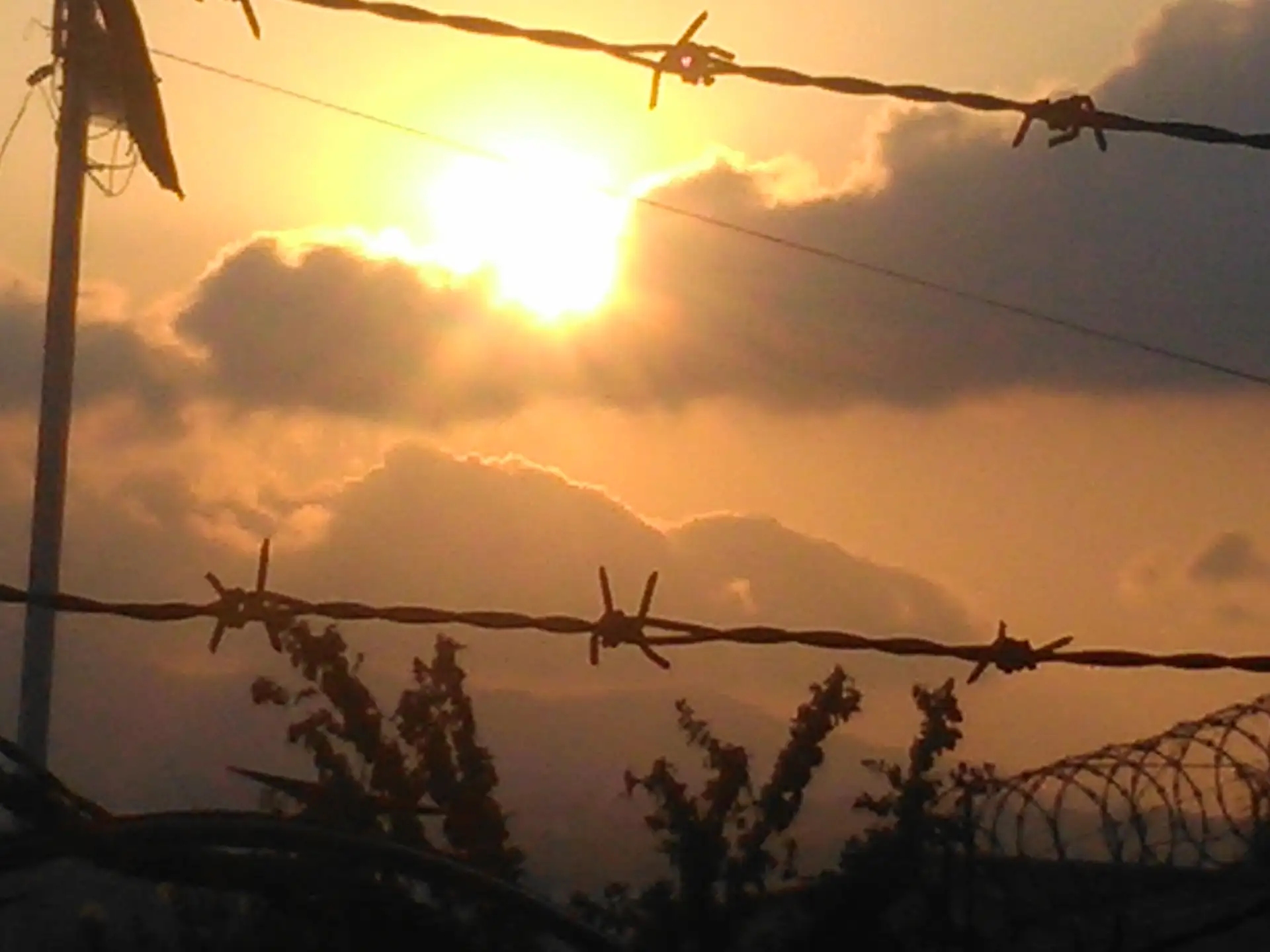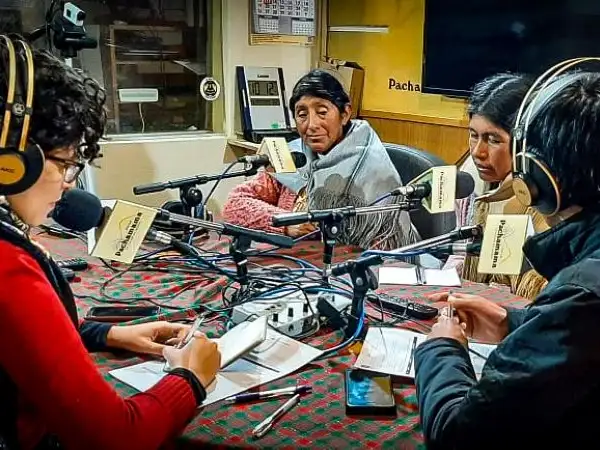

Eufracia Huarahuara Mamani (right) speaking on the Pachamana radio programme.
Throughout the pandemic, radio and podcasts have been a vital lifeline for isolated communities to get the information they need to stay safe. In Peru, indigenous women have taken the lead in broadcasting life-saving information to their communities in local languages.
The radio crackles. A jingle plays and a voiceover speaks: “The Amazon has a woman's name because the Amazon is a woman. A bountiful woman, a fighter, a brave woman.”
We are now on the frontline defending our population
This is how the Amazonia Es Mujer ("The Amazon is a woman") podcast starts. In this episode, Maribel, a health technician and an indigenous woman from the Harakbut people, joins the show.
“We are now on the frontline defending our population,” she says. “I am committed to ensuring that every member of the community adopts preventative practices, using medicinal plants and combining traditional and western medicines.”
Messages of hope
The show, which is produced for women, by women, is one of several radio broadcasts created to dispel myths and share accurate information on Covid-19 with indigenous people living in the Amazon region. Indigenous communities have been severely affected by various waves of the pandemic, with the loss of elders and corresponding loss of their culture.
“The main issue is that messages haven’t been reaching indigenous and rural communities, nor shared in a way that was accessible to them - whether in their local language or from an intercultural perspective,” explains Lucy Jardine, CAFOD’s communications officer for Latin America and the Caribbean.
Whereas previously Maribel viewed her mother tongue Harakbut as an obstacle to overcome, today she values it as a treasure, and communicating messages in people’s own language, via the radio, has been key: “Often radio is all that people have in very rural areas so it’s a crucial tool for any kind of communication.”
"There are older people in the communities who do not understand Spanish, so it is good to have programmes in [local languages such as] Aymara,” explained Eufracia Mamani, President of the Kumu and Huacullani district, who lives high up in the Andes mountains. She appeared on the radio station Pachamama, which means Mother Earth. It broadcasts information on issues affecting local people, including hygiene and protection relating to COVID-19.
Indigenous voices will not be silenced
The use of local languages also has another important function: helping to keep these languages alive.
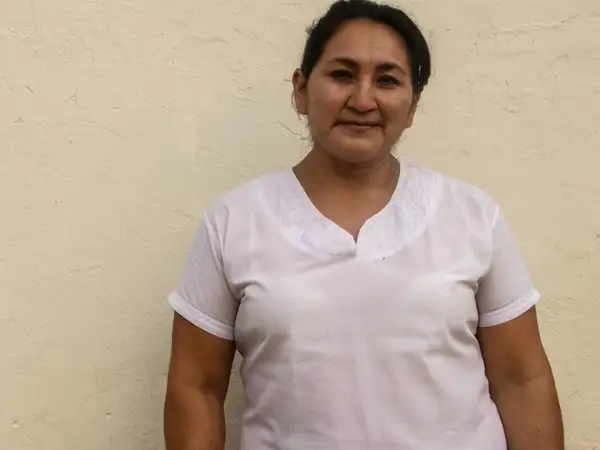

Maribel is a nurse on the front line fighting against coronavirus in the Amazon.
“Children speak only in Spanish [at school],” says Eufracia, “so it is necessary for some programmes to be in Aymara, so they hear our mother tongue spoken.”
Peru continues to face many challenges as its new government contemplates the political, economic and social fallout from the coronavirus pandemic, which is still ongoing. Peru has suffered more than many nations, with the highest per capita death rate in the world. But one thing is certain - the voices of indigenous women will not be silenced.


